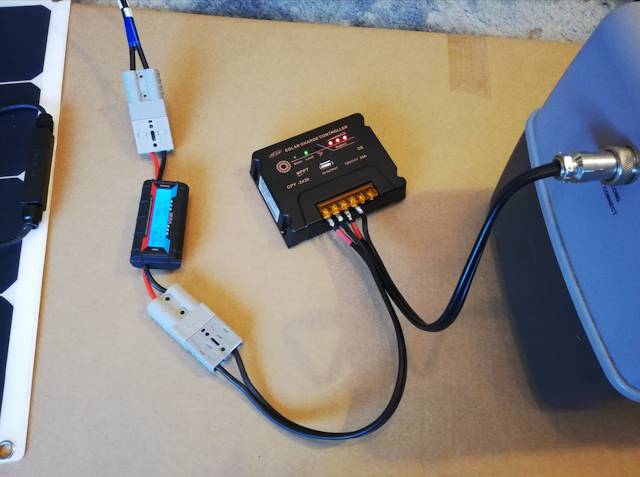MPPT regulator is genuine MPPT
I posted about a couple of very cheap Chinese MPPT regulators
that I purchased, for use with my 12V battery and photovoltaic solar
panel:
http://bkhome.org/news/201904/beware-the-cheap-mppt-solar-regulators.html
As I mentioned in that post, there are many cheap regulators labelled
as "MPPT" but are actually only PWM type. There is one particular
model, that is very cheap yet does seem to be genuine MPPT, but there is
some conflicting information in YouTube videos. So, I wanted to find
out for myself.
As reported in that post, I ordered two, that seemed to be the same,
and upon arrival I opened them up and they are identical inside. I paid
AU$46.71 and AU$48.44, and just now looking at the eBay links, I see
that the prices have gone up, now AU$64.99 and AU$49.46 (latter with
discount code). Vendors are "intl-trading" and "sunyee-au",
respectively, Aussie businesses, with AU stock.
As they looked identical internally, I only tested the one from
intl-trading, and I am pleased to report that it is a genuine MPPT
regulator. Photo of test setup:

I have not tested conversion efficiency, nor idle current, just wanted to confirm that it is genuine MPPT.
Passing puffy clouds in the sky, which was a very good opportunity to
observe peak-power point tracking of the regulator. The digital
power-meter on the input side, displays voltage, amperes, and power, and
I was very pleased to observe the regulator accurately tracking the
peak-power point as the sun faded and came back.
The three state-of-charge LEDs also did their job. I started off with
the battery slightly discharged, which I achieved by running a desk
lamp via a small 12-240 volt inverter. After plugging the regulator to
the battery, solar panel not yet connected, two LEDs lit up. Yes, I also
tested before having discharged the battery, and got three LEDs lit up.
Very good.
After connecting the solar panel, all three LEDs lit up, which is to
be expected. The LEDs would only be expected to give an accurate
indication of charge without charging, and the battery voltage
stabilized. Note, a stabilized battery voltage is quickly achieved by
connecting a load to the battery (without charging connected), then
remove the load, and the voltage will rise up, within 3 minutes and
stabilize -- that voltage is what you read to determine state-of-charge.
There is a bit of variation depending on what type of lead-acid
battery, but for most deep-cycle batteries, from memory, it is 11.7V 0%
up to 12.7V 100% -- I will check this with my battery, need to recharge
it fully first.
EDIT 2019-05-25:
Open circuit stabilized voltage of the Waeco "CoolPower 44" at 100% charge is 12.85V. So, 0% will be about 1V below that.
Probably when I get setup for a camping trip, will configure the two
sides of the folding solar panel in series, giving "24V", as this will
result in lower current along the cable and into the regulator, which
may be "better" for the regulator.
EDIT 2020-02-07:
Update: do not buy this regulator!!! See first field test here:
https://bkhome.org/news/202002/first-camping-trip-in-2020.html
Tags: nomad
